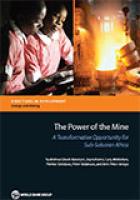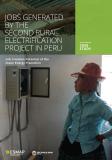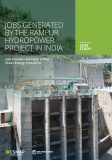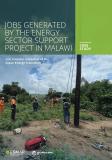Publications

Africa needs power - to grow its economies and enhance the welfare of its people. Power for all is still a long distance away - two thirds of the population remains without electricity and enterprises rank electricity as a top constraint to doing business. This sub-optimal situation coexists while vast energy resources remain untapped. At the same time, mining–one of Africa’s largest industries–needs reliable power in large quantities to operate.
In the last 15 years, mining companies across Africa have spent over $15 billion to cover the cost of electricity. None of the power generated by these mines has made it onto national grids. An opportunity exists for countries in Africa to join forces with mining companies to help generate more, cleaner and cheaper power, not just for the mines, but for families, communities and businesses.
Underpinned by a comprehensive database of mining projects between 2000 and 2020, this report explores the potential and challenges of using mining demand for power as anchor load for national power system development and expansion of electrification. The report finds that mining demand can indeed be a game-changer–an opportunity for policymakers and the international community to make a difference by tapping the enormous mineral wealth of Africa for the benefit of all. Utilities would benefit from having mining companies as creditworthy consumers that facilitate generation and transmission investments producing economies of scale needed for large infrastructure projects, benefiting all consumers in the system. The mines would benefit from grid supply–typically priced much lower than self-supply–which allows them to focus on their core business, greatly enhancing their competitiveness. And countries would benefit from more exports and tax revenues from mines, more job opportunities in local firms selling goods and services to the mines, and a higher GDP.



